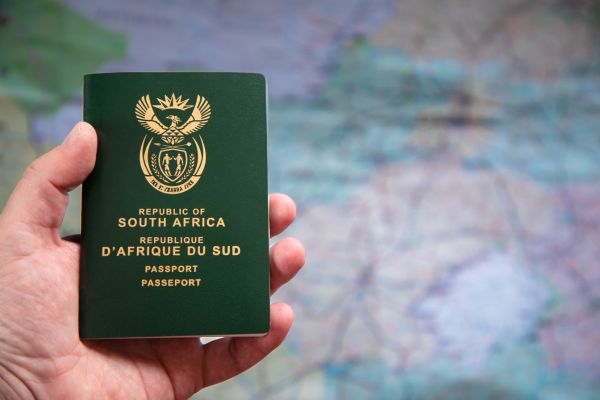Top Checklist for Moving to South Africa from the UK

by Hayley
Moving to South Africa from the UK is an exciting opportunity, but it requires careful planning to ensure a smooth transition. From sorting out visas and finances to finding housing and navigating healthcare, a detailed checklist can help you stay organised and stress-free throughout the process. This guide covers the essential steps to make your move to South Africa as seamless as possible.
South Africa offers expats a vibrant lifestyle, rich cultural experiences, and diverse job opportunities, making it a popular choice for UK residents looking to relocate. However, securing the right visas and permits, along with health certificates and financial arrangements, is vital for a successful start in your new country.
We’ll walk you through key considerations like understanding the local education system, finding suitable healthcare options, and exploring the housing market. With the right preparations in place, you can settle into your new South African life with ease and confidence. If you require a removal service to South Africa, contact us at Simpsons International Removals. Let’s get started on what you need to know about moving to South Africa.
1. Why move to South Africa?
South Africa is a popular choice for many expats, and it’s easy to see why.
The country’s breathtaking landscapes, from the iconic Table Mountain in the Western Cape to the stunning beaches along the coast, offer endless opportunities for outdoor activities and exploration.
If you want to experience all this, be sure to visit South Africa. The lifestyle here is more laid-back compared to the hustle and bustle of the UK, allowing you to enjoy a better work-life balance and more time to relax and enjoy your surroundings.
For those pursuing the South African dream, the country offers a unique blend of modern amenities and rich cultural heritage. Whether you’re drawn to the vibrant cities or the tranquillity of rural areas, South Africa has something for everyone.
Many South Africans speak multiple languages, reflecting the country’s diverse culture and making it easier for newcomers to integrate and feel at home. Additionally, expats often move to South Africa for work opportunities, attracted by the country’s growing economy and the demand for skilled professionals.
One of the most compelling reasons to move to South Africa is the sense of community and friendly atmosphere that pervades the country. South Africans are known for their hospitality and openness, making it easier for newcomers to build friendships and social networks.
Whether you’re returning to your roots or starting a new chapter in your life, becoming a South African citizen or obtaining South African citizenship can open doors to a world of opportunities.
2. Essential Paperwork
Securing the necessary paperwork is a crucial step when planning your move to South Africa.
This includes obtaining various visas and permits, ensuring your South African passport is valid, and arranging for health certificates.
The South African government requires different types of documentation depending on your intended duration of stay and purpose, whether it be for work, study, or permanent residency.
Local newspapers and resources can provide valuable information on the latest requirements and procedures.
Visa and Permits
Navigating the world of visas and permits can be confusing, but it’s a necessary part of moving to South Africa. UK citizens need to secure the appropriate temporary residence permits, which allow stays ranging from three months to three years. These permits can be based on various factors such as investment, key skills, or family connections. For example, the Exceptional Skills Permit is designed for individuals with scarce skills, evaluated on a case-by-case basis.
If you plan to stay longer, applying for a permanent residence permit is the next step. This process can take between 8 to 24 months, and you’ll need to provide a range of documents, including passport photos, a valid passport, birth certificate, and medical records. It’s important to start this process early to avoid any delays.
Business permits are also available for those looking to invest or start a south african business in South Africa, requiring a minimum investment and a detailed business plan.
For retirees, the Retired Persons Visa is an option, provided you can prove sufficient income and agree not to seek employment. Family members of South African residents or citizens can apply for a General Family Visa, making it easier for families to stay together.
Understanding these different visa types will help you choose the best path for your move.
Passport Validity
Having a valid passport is a must when planning your move to South Africa. Your passport must remain valid for at least six months beyond your planned date of departure from the country. This requirement ensures that you won’t face issues when entering or exiting South Africa.
Always check the expiration date well in advance and renew your passport if necessary to avoid any last-minute complications.
Health Certificates
Health certificates are another essential aspect of your paperwork. Depending on the type of visa you’re applying for, you may need to undergo medical exams and provide health certificates as proof of your fitness. These certificates ensure that you meet the health standards set by the South African authorities, helping to protect public health.
It’s advisable to complete these requirements early in the application process to avoid any delays.
3. Financial Preparations
Before making the move, it’s crucial to get your finances in order. This includes setting up a bank account, transferring money, and proving financial independence when applying for your visa. You should have at least £2,000 (45,421 ZAR) per applicant to meet the minimum financial requirements.
Additionally, it’s important to contact creditors in the UK to close or hold accounts, ensuring your credit history remains intact. A well-thought-out budget plan can help avoid any financial issues during your stay in South Africa.
Currency Exchange
Converting your money to the South African Rand (ZAR) is an important step. Reputable foreign currency exchange services can assist with this process, providing reliable ways to transfer money from the UK to South Africa.
Economic factors like Brexit and the global impact of Coronavirus can affect the GBP to ZAR exchange rate, so it’s wise to check current rates and use online comparison tools to find the best deals.
Opening a Bank Account
Opening a local bank account in South Africa is essential for managing your finances smoothly. You’ll need to present your passport and proof of address to complete this process. Expats often encounter difficulties in getting a credit card. This is primarily due to not having a South African credit record.
Consider banks like Standard Bank, ABSA, and First National Bank, which offer services tailored to expats. Following the necessary steps and preparing the required documentation will help you navigate this process successfully.
Budgeting for Living Costs
Living costs in South Africa are generally lower than in the UK, making it an attractive destination for expats. For instance, rent is approximately 62% lower, utility costs are around a third cheaper, and food shopping is significantly less expensive. A typical mid-range meal for two costs about £29.24 (664 ZAR), and a litre of fuel is just over £0.97 (22,03 ZAR). These lower costs mean that many expats find their salaries stretch further, allowing for a better quality of life.
However, creating a careful budget is crucial to manage your finances effectively. This includes accounting for all living expenses, from rent and utilities to groceries and transportation. Planning your budget in advance can help you avoid financial problems and ensure a smooth transition to your new life in South Africa.
4. Healthcare Arrangements
Securing quality healthcare is a top priority for expats moving to South Africa.
The country offers private and public healthcare options, each with advantages and disadvantages.
While private healthcare provides quicker access to treatments, public healthcare is more affordable but can be underfunded and overcrowded.
Deciding between these options will depend on your healthcare needs and financial situation.
Private Health Insurance
Most expats opt for private health insurance to ensure they receive prompt and effective medical care. Private healthcare can be costly, with childbirth at a private hospital starting from ZAR 45,000 (approximately £1,800). Adequate private health insurance is crucial to cover these expenses and provide peace of mind.
It’s advisable to arrange your healthcare insurance before leaving the UK to ensure coverage upon arrival in South Africa.
Public Healthcare System
The public healthcare system in South Africa is accessible but often underfunded and overcrowded compared to private options. Routine healthcare costs are relatively affordable, even without insurance, but expenses can increase for emergency visits or specialist consultations.
Johannesburg, in particular, is known for having some of the best healthcare facilities in the country.
Vaccinations and Medical Checks
Before moving to South Africa, ensure you and your pets are up-to-date with necessary vaccinations. For pets, a rabies vaccine is required at least 30 days but not more than 12 months before travel. Additionally, a veterinary health certificate must be issued within 10 days prior to export.
For expats, undergoing a comprehensive health check before relocating is recommended to confirm your health status.
5. Housing and Accommodation
Finding suitable housing is an important part of your move to South Africa. The country offers a diverse range of accommodation options, including furnished and unfurnished flats, townhouses, and villas.
Rental prices can vary significantly between different provinces and cities, so it’s essential to research and find the best option that fits your budget and preferences.
Renting Property
Renting property in South Africa provides flexibility, especially for short stays. There are various types of rental properties available, such as flats, townhouses, and Victorian cottages. Lease lengths typically range from one to two years, with shorter terms available in some cases.
The average cost of renting a one-bedroom flat is approximately 6,204.42 Rands (£259.18). It’s easier to find rental properties during autumn and winter, particularly between May and September.
Buying Property
For those looking to settle permanently, buying property in South Africa is an option. Property prices in urban areas tend to be higher, with city centre homes averaging around 18,275 Rands (£798).
However, purchasing a home can be a worthwhile investment, providing stability and a sense of belonging in your new country.
Temporary Accommodation
Temporary accommodation is essential while you search for a permanent residence in South Africa. The average cost of a 3-bedroom house is under R2 million (£89,000), with prices varying based on location.
Finding temporary accommodation allows you to explore different areas and make an informed decision about where to settle permanently.
6. Moving Your Belongings
Moving your belongings to South Africa involves careful planning and choosing the right method of transportation.
Options include container shipments or air transfer, each with its own advantages.
It’s essential to research customs regulations and select a reliable removal company to ensure a smooth transition.
Choosing a Removal Company
Choosing a reputable removal company is crucial for a successful move to South Africa. Verify the qualifications and accreditations of your chosen company to ensure they provide reliable services.
Simpsons International Removals offers a full door-to-door service, including packing, customs clearance assistance, and storage facilities if needed. Taking out Shipment Protection Cover is recommended for peace of mind during transit.
Packing and Shipping
When packing and shipping your belongings, consider the available services. Both air freight and sea freight are options, with air freight being quicker and sea freight more cost-effective. House removals typically take 3-6 weeks for full container service and 6-10 weeks for part-load service.
Simpsons provides export quality packing materials to ensure your items are secure during transit.
Customs Regulations
Understanding customs regulations is vital to avoid any issues upon arrival. Used personal effects and household goods can generally enter South Africa without duty fees if you have a permanent residence permit. However, certain items, such as alcohol and vehicles, require specific permits and adherence to regulations.
The usual timeframe for customs clearance is 7-10 days. Ensure compliance to protect the country, its people, and its ecology.
7. Pet Relocation
Relocating pets involves following specific guidelines to ensure their safe entry into South Africa. This includes obtaining the necessary import permits and completing all required veterinary paperwork.
Websites like Pets2Fly can provide additional information and assistance with the process.
Import Permits
To legally bring your pets into South Africa, you must obtain a veterinary import permit. This involves completing veterinary paperwork, including a health certificate dated within 10 days before departure. Pets must be cleared at either Cape Town or Johannesburg airports upon arrival.
Ensure all paperwork is correctly completed to avoid quarantine.
Vaccinations and Microchips
Pets must be vaccinated against rabies at least 30 days before travel. Additionally, microchips are required for identification purposes.
Ensuring these requirements are met will facilitate a smooth relocation for your furry friends.
Transport Arrangements
Before transporting your pet, ensure all necessary veterinary import permits are obtained. Pets must be up to date with vaccinations and microchipped according to South African regulations.
Proper preparation and compliance with these guidelines will ensure a safe and stress-free journey for your pets.
8. Settling In
Settling into your new life in South Africa involves engaging with the local culture, making new friends, and managing any language barriers. Embracing the local lifestyle and building social networks will help you feel at home and enjoy your new surroundings.
Understanding South African Culture
South Africa’s culture is a rich tapestry of various traditions, earning it the nickname “Rainbow Nation”. The society is known for its open, multi-cultural environment, celebrating diversity and friendliness. Respecting all cultures and religions is a common value, making it easier for newcomers to integrate.
Engaging with local traditions and anthems can help you feel connected and welcomed.
Making Friends and Building Networks
Building a social network is crucial for adapting to life in South Africa. Expats can meet new people through social media, local clubs, and organisations. Meetup.com is a great platform for finding like-minded individuals and engaging in activities.
Social integration helps newcomers feel at home and fosters a sense of community connection. Urban settings often provide more opportunities for socialising.
Language Barriers
South Africa recognises eleven official languages, with English being widely spoken in urban areas. This makes it easier for newcomers to employment
it in and communicate. Zulu is the most common language spoken, with 98% of South Africans speaking an official language as their mother tongue.
Understanding and respecting these languages will help you navigate daily life and connect with locals.
9. Driving in South Africa
Driving in South Africa requires understanding local road rules and safety measures.
This includes knowing the unit used for speed limits, the process for registering your car, and public transport alternatives.
Adapting to these conditions will ensure a safe and convenient experience on the roads.
Road Rules and Safety
Before driving in South Africa, familiarise yourself with the legal requirements and local driving conditions. Cars drive on the left-hand side of the road, and speed limits are measured in kilometres per hour, with a maximum limit of 120 km/h on highways.
Understanding these rules and adhering to safety measures will help ensure a smooth driving experience.
Registering Your Car
To register a vehicle in South Africa, approval from the South African Bureau of Standards is required. Additionally, an International Driver’s Permit and your British driving licence are necessary. Importing a car involves specific regulations, permits, and the payment of applicable duties or taxes.
Many people find it cost-effective to ship their car together with other belongings from the UK.
Public Transport Alternatives
Public transport in South Africa offers an affordable and convenient alternative to driving. Coaches are the most cost-effective way to travel, with fares in central Cape Town during off-peak times costing approximately R6.40 (about 30p).
Utilising public transport can help you navigate the city centre easily and economically.
10. Education System
South Africa’s education system includes both public and private institutions catering to various needs and budgets. The academic year runs from the third week of January to the beginning of December, with compulsory schooling starting at age seven and continuing until age 15. Many South Africans are multilingual, which enhances the educational experience.
Families moving to South Africa may also need to consider childcare services.
Public vs. Private Schools
Private school education in South Africa is generally more affordable than in the UK, with annual costs averaging over R174,000 (£7,813). However, public schools’ quality varies based on provincial budget allocations. Many expat parents prefer private or international schools due to the better teaching and facilities despite the higher fees.
International Schools
International schools cater specifically to expat families, offering a curriculum aligned with international standards and recognised exams. These schools ensure qualifications are valid globally and have excellent acceptance rates into further education worldwide. They provide a familiar educational environment, making the transition easier for expat children.
Enrollment Process
The enrollment process for schools in South Africa involves choosing between public and private institutions based on your needs and budget. Public schools offer free education but may have larger class sizes, while private schools provide smaller classes, advanced facilities, and various extracurricular activities.
International schools follow curricula like the British, American, and International Baccalaureate systems, catering to expat families.
11. Employment Opportunities
South Africa offers numerous employment opportunities, especially in sectors like mining, automobiles, agriculture, and services.
Finding a job often involves networking and utilising job websites like Pnet. The South African work-life balance is notably better, making it an attractive destination for employment.
The job market for qualified foreigners is large, driven by local brain drain.
Work Visas
UK citizens require a visa to stay in South Africa for more than 90 days. Temporary residence visas can last between three months and five years, with various types available depending on whether you have a job offer.
The Critical Skills Visa is designed for skilled workers with in-demand qualifications. Keeping updated on visa regulations is crucial as they can change.
Job Search Strategies
Networking is key to finding employment in South Africa, often revealing unadvertised job opportunities. Attending industry-related events and joining professional associations can help connect you with potential employers.
Utilising job portals like Careers24 and JobMail is essential, and recruitment agencies can assist with resume preparation and interviews.
Recognised Professions
Certain professions are particularly in demand in South Africa, including those in the mining, IT, and healthcare sectors. These sectors play a crucial role in the South African economy and offer numerous opportunities for qualified professionals. Skilled workers in these fields are highly sought after, making it easier to secure employment.
Summary
Relocating to South Africa from the UK is a major step, but it can be an exciting and rewarding experience with the right preparation. From obtaining the necessary visas and handling financial arrangements to finding the perfect home and settling into your new community, each part of the process is crucial to ensuring a smooth transition. By embracing the adventure, you’ll soon be enjoying South Africa’s warm climate, breathtaking scenery, and rich cultural experiences.
At Simpsons International Removals, we’re here to make your move as seamless as possible. Our comprehensive door-to-door service covers everything from professional packing to customs clearance and delivery, whether you’re moving a small shipment or an entire household. Let us take the stress out of your relocation so you can focus on settling into your new life.
Recommended Posts

Top Things to Do in Cape Town When You Live There
Thursday, 23rd January 2025

The Top Benefits of Living in South Africa
Thursday, 3rd October 2024

Finding the Best Place to Live in Italy for UK Expats
Friday, 28th March 2025







